Research News
11 March 2021
Tech for Health: building a unique Erasmus MC lab to combat arthritis
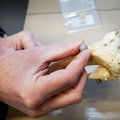
This month, the University Fund and TU Delft launched a campaign called Tech for Health | Better healthcare thanks to Delft technology. The campaign comprises seven pioneering and illustrative studies, each symbolising the many unique innovations and collaborations taking place at TU Delft and the medical centres.
11 March 2021
Gerjo van Osch receives Suffrage Science Award on International Women’s Day

Gerjo van Osch, part-time professor of Integrative Cartilage Regeneration at the Department of BioMechanical Engineering and principal investigator at the Department of Orthopaedics & Otorhinolaryngology at Erasmus MC, received the Engineering and Physical Sciences Suffrage Science award on International Women’s Day.
09 March 2021
Liselore Tissen: new ‘Face of Science’
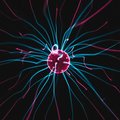
Today, the Royal Netherlands Academy of Arts and Sciences (KNAW) announced the twelve new ‘Faces of Science’. Liselore Tissen, PhD student at the department of Materials Science and Engineering and part-time at Leiden University, is one of the 12 new faces.
08 March 2021
Working together for the future
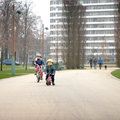
Cities are changing, and so is mobility. New ideas and working methods are needed to link the city and the motorway. Interdisciplinary and cross-sectoral approaches offer future value in this respect.
08 March 2021
New test makes detection of genetic material visible to the naked eye
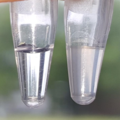
Onderzoekers van de TU Delft hebben een test ontwikkeld waarmee ze specifieke stukjes genetisch materiaal kunnen opsporen, waarna de uitslag met het blote oog af te lezen is. Met de test kunnen onder meer virussen, zoals het coronavirus, en antibioticaresistente bacteriën snel en goedkoop worden gedetecteerd. De resultaten zijn gepubliceerd in Biophysical Journal.
05 March 2021
TU Delft launches Tech for Health
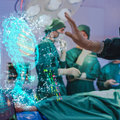
Today, TU Delft launches Tech for Health | Better healthcare thanks to Delft technology. The university is shining a spotlight on its research innovations that contribute to the improvement of healthcare, especially in countries like The Netherlands.
03 March 2021
Using smart technology to make fuel out of CO2
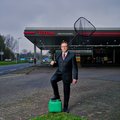
Too much CO2 in the air is currently causing a major problem: climate change. If it were up to Peyman Taheri, researcher at Materials Science and Engineering at TU Delft, we would be making smart use of surplus CO2 by converting it into a new fuel.
03 March 2021
Researchers invite all inhabitants of the Netherlands to contribute to climate policy
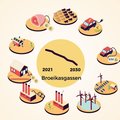
What does the Dutch population think about Dutch climate policy? Researchers from TU Delft and Utrecht University invite thousands of Dutch people to contribute their ideas.
02 March 2021
TU Delft maps own CO2 emissions in detail
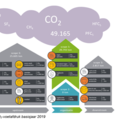
As a ‘climate university’, TU Delft aims to be carbon neutral and circular by 2030. Information regarding CO2 emissions on campus is essential to realising this ambition. The CO2 performance ladder methodology has now been used to map emissions in 2019.
02 March 2021
Delft researchers develop a versatile hydrogen sensor
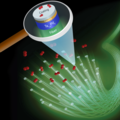
Hydrogen is playing an increasingly important role in the transition to a completely sustainable economy. Right now it is already being used on a large scale in industry, but it is also being used more often for sustainable energy storage and as a fuel for large and heavy vehicles in particular. There are plans for converting the existing natural gas network into a hydrogen network. However, under certain circumstances hydrogen is a combustible and sometimes even an explosive gas, so it is important to track down the tiniest hydrogen leaks as quickly as possible. This makes cheap, reliable and small sensors that can quickly detect small amounts of hydrogen of vital importance. Researchers at TU Delft have now developed a material that is extremely suited to this task.
02 March 2021
Measuring system using laser beams and helium bubbles helps top skaters go for gold
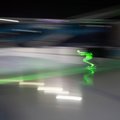
TU Delft, NOC*NSF, KNSB and Innovation Lab Thialf have been using the Ring of Fire measuring system to analyse top Dutch speed skaters. The measuring system was used last week in Heerenveen to measure and visualise the air resistance around a moving skater.
01 March 2021
Simulations to make insight into electrokinetic transport more reliable
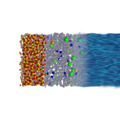
Researcher Remco Hartkamp and PhD student Max Döpke of the Process & Energy Department have taken an important step in making simulation results for electrokinetic transport more reliable by using molecular simulations.
26 February 2021
TU Delft increasing study spaces on campus
Studying online places a heavy burden on students. Therefore, TU Delft is looking at various possibilities to enable more physical education and study places on campus. “We realise that for some students it is very difficult to study at home. That is why we are looking at increasing the number of study places on campus” says Rob Mudde, Vice President of Education TU Delft.
24 February 2021
TU Delft develops 'brains' for buildings

A large consortium led by TU Delft is going to provide ‘brains’ to buildings. The Dutch Ministry of Economic Affairs and Climate Policy has allocated 6.9 million euro to the Brains 4 Buildings project.
17 February 2021
Researchers clarify the microscopic origin of dissipation with graphene
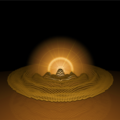
Associate professor Farbod Alijani and PhD student Ata Keşkekler have provided supporting evidence for the existence of a nonlinear dissipation mechanism in mechanical systems.